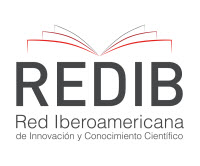| JOURNAL’S TITLE: | Pensamiento Matemático (Mathematical Thinking) | ||
| PUBLICACIÓN: | Madrid. E.T.S. de Ingenieros de Caminos, Canales y Puertos de la Universidad Politécnica de Madrid. | ||
| RESPONSIBLE ENTITY: | Grupo de Innovación Educativa “Pensamiento Matemático” (Educational Innovation Group “Mathematical Thinking”), and Grupo de Investigación “Matemática Aplicada a la Ingeniería Civil” (Research Group MAIC), both from Polytechnic University of Madrid. | ||
| KEYWORDS: | Mathematics; University Teaching; Secondary School Teaching. | ||
| NOTES: | Biannual until 2021 and anual thereafter. | ||
| COUNTRY/ORGANIZATION | SPAIN | LANGUAGE: | Spanish / English |
| URL: | https://revista.giepm.com/en | ISSN: | 2174-0410. |
EDITORIAL BOARD
Coordination:
- Mariló López González (Universidad Politécnica de Madrid, España) –
- Sagrario Lantarón Sánchez (Universidad Politécnica de Madrid, España) –
- Javier Rodrigo Hitos (Universidad Pontificia Comillas, España) –
Scientific Committee:
- Mariló López González (Universidad Politécnica de Madrid, España)
- Adela Salvador Alcaide (Universidad Politécnica de Madrid, España)
- Sagrario Lantarón Sánchez (Universidad Politécnica de Madrid, España)
- Javier Rodrigo Hitos (Universidad Pontificia Comillas, Madrid, España)
- Fernando Chamizo Lorente (Universidad Autónoma de Madrid, España)
- José Juan de Sanjosé Blasco (Universidad de Extremadura, España)
- Arthur Pewsey (Universidad de Extremadura, España)
- Alfonso Garmendia Salvador (Universidad Politécnica de Valencia, España)
- Fernanda Ramos Rodríguez (IES Virgen de la Paz, Madrid, España)
- Santiago Higuera de Frutos (Universidad Politécnica de Madrid, Madrid, España)
- Trinidad Menárguez Palanca (Universidad Politécnica de Madrid, España)
- María Isabel Garrido Carballo (Universidad Complutense de Madrid, España)
- Luigi Montoro (Università della Calabria, Italia)
- María Medina de la Torre (Universidad Católica de Chile)
- David Alfaya Sánchez (Universidad Pontificia Comillas, Madrid, España)
- Pablo Marcos López (Programador y ex-alumno)
JOURNAL INDEXED IN:
Latindex is an Information System about scientific research, technical-professional and accessible scientific and cultural journals which are published in Latin American countries, the Caribbean, Spain and Portugal. The idea of creation of Latindex appeared in 1995 at the Universidad Nacional Autónoma of México (UNAM) and became a regional cooperative network since 1997.
REDIB (Ibero-American Network for Scientific Knowledge and Innovation) is a platform for the aggregation of scientific and academic content in electronic format produced in the Ibero-American area, offers its users direct access to scientific and academic documents of proven quality, published by editors and other producers of scientific and academic contents, of countries, subjects and Ibero-American languages.
JOURNAL INCLUDED IN THE DATABASES:
Dialnet (Difusión de Alertas en la Red) is one of the biggest free access bibliographic websites and free of charge, whose main aim is to give visibility to the Hispanic scientific literature. It compiles scientific contents as well as provides access to them, mainly through documentary alerts. It also has an exhaustive, interdisciplinary and updated database which allows the storage of complete text contents.
The Directory of Open Access Journals (DOAJ) lists free access scientific and academic journals, which meets high quality standards when using revisions in pairs or editorial quality control, as well as being free of charge for everyone at the time of their publication, on the basis of the definition of free access adopted by the Budapest Open Access Initiative (BOAI). The purpose of the DOAJ is to “increase the visibility and facilitate the use of free access scientific and academic journals, so that it promotes their use and impact.”
The Information System of the ICYT Database (Instituto de Ciencia y Tecnología) of the CSIC (Consejo Superior de Investigaciones Científicas) of the Spanish Government, contains the scientific production published in Spain since the 70s. It gathers principally scientific journal articles, and in a selective way congress minutes, series, compilations, reports and monographs.
The 360º Database is free space, both for the authors and publishers who exhibit their work and readers and users who consult it. Its hosting, maintenance and, especially, its development, is supported by voluntary work, whose purpose ends up being a fundamental cultural reference and one of the pillars for the dissemination of the Spanish speaking plural and rich culture, and so offering its patronage to people, firms or foundations who value and coincide with their goals.






